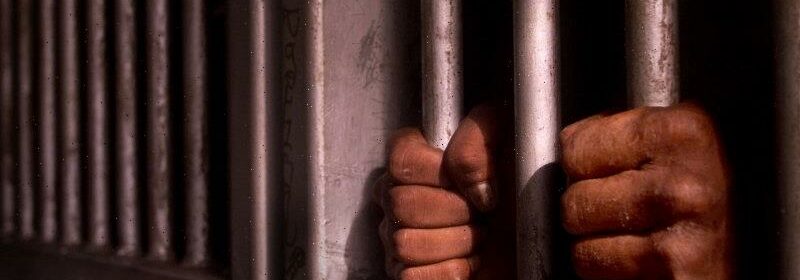Indigenous Victorians pay a high price when prisons prioritise profit

Warning: This story contains the name and images of deceased Indigenous persons.
According to the Victorian government, healthcare in prison is of the same standard as the community. Correct Care Australasia, the for-profit, US-owned company with more than $700 million in contracts to provide healthcare in prisons, has made the same commitment.
But it’s hard to imagine any community which would accept the poor, neglectful and punitive standard of “care” provided to people in Victoria’s prisons.
One Victorian Aboriginal Legal Service client lost access to disability supports in custody and was held for months in a cell for 23 hours a day.Credit:Andrew Meares
The past year has seen record numbers of Aboriginal deaths in custody in Victoria. At the Victorian Aboriginal Legal Service, I act for a number of families. Many current coronial inquests and investigations, including into the deaths of Veronica Nelson, Michael Suckling, Ms Calgaret and Clinton Austin, have or will examine the adequacy of healthcare provided in prison by Correct Care.
My clients in prison speak of being denied disability support, access to specialists and prescriptions. They speak of onerous forms and processes to have their basic needs met, and of their medical concerns being ignored or dismissed.
One client with an intellectual disability lost access to disability supports when entering custody and was instead held for months in a cell for 23 hours a day. Another client told us about delays in receiving emergency medical assistance after they had had a stroke.
Other clients say that they have to wait weeks to see a GP and months for specialists. They speak of being denied prescriptions they received in the community, and of health practitioners with no cultural training.
The Dame Phyllis Frost Correctional Centre, a women’s prison in Deer Park.Credit:Joe Armao
Contrary to the views of many politicians, prosecutors and judges, prisons are not safe places for anyone. They are particularly unsafe for Aboriginal and Torres Strait Islander people, who were three times more likely to not receive all required medical care before they died in custody.
This issue is peculiarly sinister in Victoria; the only state in Australia in which all healthcare in public and youth prisons is contracted out to a for-profit private corporation, Correct Care. Correct Care, formerly a subsidiary of GEO Group, is now a subsidiary of Wellpath, the largest private prison healthcare provider in the United States, which has an atrocious track record.
A number of high-profile investigations paint a disturbing picture of Wellpath and the companies which merged to create it. They speak of people, mostly black, denied medical care for treatable ailments, begging and pleading for help over days, dying in excruciating pain, and being ignored by medical officers and told they were “faking it”.
On at least two occasions, the US Department of Justice has issued scathing critiques of Wellpath and its predecessors. This includes uncovering that Wellpath’s own health services administrator used a meme to mock prisoner healthcare concerns as “whining”.
The Department of Justice’s process of reviewing of deaths in custody has been criticised by the Coroners Court.Credit:Justin McManus
There are uniquely perverse incentives created by the privatisation of prison healthcare. The starkest is the profit motive. Corporations like Correct Care are incentivised to increase profits, cut costs, expand to new carceral settings, and protect their multimillion-dollar contracts.
With a lack of independent oversight of prison healthcare, it is difficult to know the precise harms of privatisation. Reviews of deaths in custody in Victoria are overseen by the Department of Justice, and are traditionally merely “desktop reviews”, a process criticised by the Coroners Court. Further, coronial investigations frequently take over three years to resolve, and in Victoria, inquests are not mandatory for all deaths in custody.
However, we don’t need to look too far afield to know that profit-driven prison healthcare can have dire consequences. In the US, investigations have found that jails with private healthcare providers had higher numbers of deaths in custody than those with public providers.
Correct Care’s contract is overseen by the Department of Justice, not the Department of Health. This conflicts with declarations from the World Health Organisation and UN which emphasise that prison health services should be part of the general health services of a country.
But it does not need to be this way. In many countries, such as Norway, France and the United Kingdom, prison healthcare is administered by state healthcare services. This governance goes some way towards integrating prison healthcare into the community health system.
If Victoria is to follow its commitment to self-determination, it must also heed calls by the Victorian Aboriginal Community Controlled Health Organisation for Aboriginal health services, which are best placed to provide culturally safe care, to be engaged in prisons.
Correct Care’s contract for healthcare in public prisons expires in July 2023 and in youth prisons in June 2024. But the government does not need to wait to take action. It can exercise termination options with or without cause by providing notice. The government can also intervene if there is or could be an emergency or failure to provide adequate prison health services.
Surely, the number of recent deaths in custody warrants the immediate exercise of these contractual options and transfer of prison healthcare away from profit-driven corporations and towards the Department of Health and Aboriginal health organisations.
The Opinion newsletter is a weekly wrap of views that will challenge, champion and inform your own. Sign up here.
Most Viewed in National
From our partners
Source: Read Full Article


